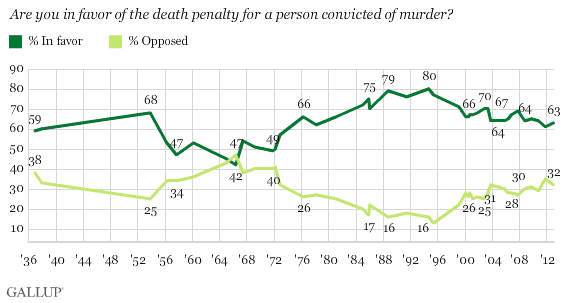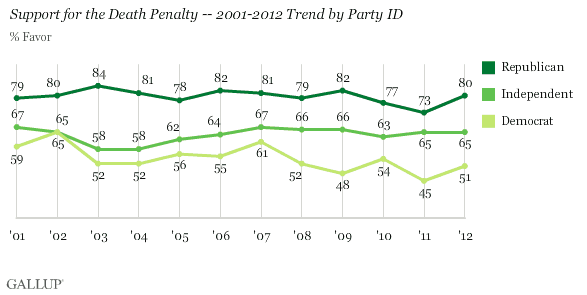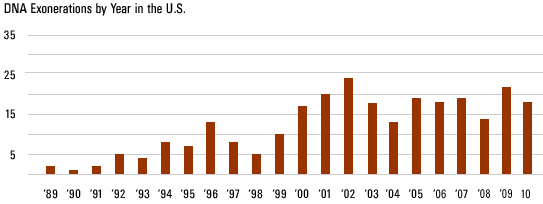Although public support of capital punishment has been falling since its peak in 1994 — when 80 percent of Americans said they favored it — approval numbers have plateaued in the 60th percentile over the past decade.
Gallup first started polling about the death penalty in 1936. At that time, 59 percent of Americans were in favor of it. Although support dropped in the 1960s — including the all-time low of 42 percent in 1966 — it rose steadily in the 1970s and ’80s.
According to Gallup, the recent drop in support has mainly occurred in two key groups: young adults (18-to-34) and men. The trend is further broken down by political party, with Democrats who say they favor the death penalty dropping from 59 percent in 2001 to 51 percent in 2012.
According to a Pew Research Center 2011 report, when asked why they opposed the death penalty, most people cited two main reasons. Twenty-seven percent said it was wrong or immoral to kill someone and the same number “cite concerns about flaws in the justice system and the possibility that innocent people could be put to death.”
In a Gallup survey 20 years ago, when just 18 percent opposed the death penalty, a much higher percentage of death penalty opponents (41 percent) cited moral considerations and there were far fewer mentions of problems with the justice system or wrongful executions (11 percent).
Some of that concern may have been generated by the Innocence Project, a program begun by Barry C. Scheck and Peter J. Neufeld designed to assist prisoners who could be proven innocent through DNA testing. Since 1989, 305 convictions have been overturned through DNA exonerations — 18 of those on death row.
In terms of racial differences, the Pew Center reports that white people (68 percent) approve of the death penalty at a higher percentage than African Americans (40 percent) and Hispanics (52 percent). Regionally, residents of the Midwest (66 percent) and South (68 percent) are more likely to be in favor than those who live in the East (54 percent). Statistics from Gallup show that the more education a person has, the more likely he or she is to oppose the death penalty. Forty percent of those with college degrees are against it, while only 24 percent of those without college degrees expressed opposition.




